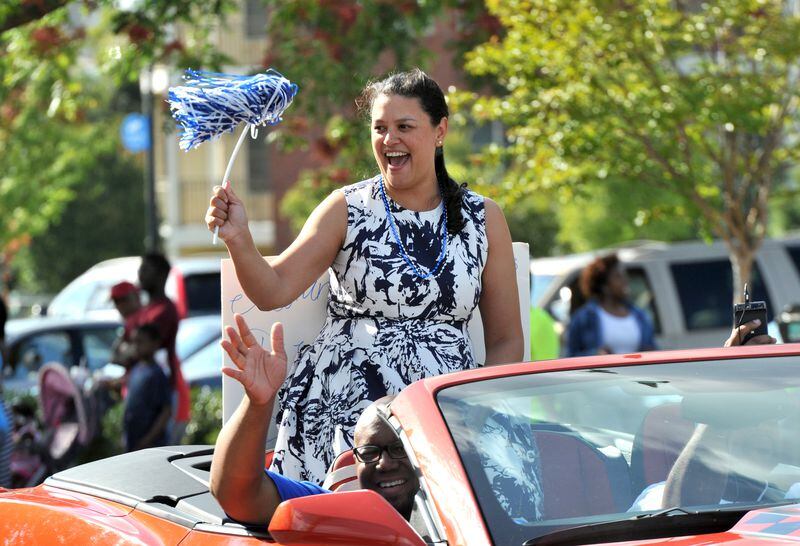The experts yesterday at the joint House-Senate meeting on recovery school districts provided a clear summation of what Georgia needs to seek in a leader to oversee low-performing schools seized by the state: The candidate has to be committed to the tenet all students can learn, unwilling to accept excuses, inspirational and smart.
Gov. Nathan Deal is proposing to seize control of some of the 141 lowest-performing schools in Georgia by moving them into a new state-run Opportunity School District. (His plan calls for 20 schools a year to be added, capping his district at 100.)
Of those 141 struggling schools, 60 are in metro Atlanta. With 27 schools on the list, APS has the highest number eligible for Opportunity District takeover. DeKalb County is next with 26; Fulton has seven and Clayton three. No schools from Cobb or Gwinnett are on the list.
The plan would empower the state to run these struggling schools, close them, partner with local school districts or convert them into charter schools. (Georgia law already allows them to become charter schools. APS has 17 charter schools. )
The Opportunity School District would be overseen by a new education czar who would report to the governor.
Deal's plan hinges on recruiting a charismatic leader to pilot these schools to success. But Atlanta has already done that.
Credit: Maureen Downey
Credit: Maureen Downey
And the woman only just arrived. The state ought to give Dr. Meria Carstarphen time to prove her mettle before it starts gathering up APS schools for its Opportunity District.
It makes no sense to put another high-salaried education leader on the APS case when the system has already hired a nationally recognized wunderkind to do the job.
How many visionary, six-figure-salaried leaders does a system of 56,000 students need? Atlanta doesn't need another school chief for its under performing schools.
So who does need the state’s help? Districts in the far reaches of Georgia without the resources or location appeal of an Atlanta or a DeKalb.
Unfortunately, those remote systems are the least likely to benefit from an Opportunity District.
Over the years, I've talked to a half dozen bright young teachers who moved to NOLA to work in or lead the charter schools that arose from the devastation of Hurricane Katrina.
Each of those teachers cited two factors in their decision, the urge to be part of an education experiment never tried before in the United States and the desire to live in New Orleans.
I believe Georgia can entice young educators to metro Atlanta to work in schools taken over by the state. I don’t believe the state will be as successful getting young idealists to move to rural Georgia schools that struggle now with recruitment.
There are good reasons charter school companies focus expansion on urban centers. Rural districts lack two critical elements: Resources and a deep talent pool.
I wrote a Sunday editorial a few weeks ago, in which I raise several issues worth discussing here.
Among them:
While New Orleans presented a compelling and single reform target, failing schools in Georgia are scattered. They are not conveniently clustered for easy coordination. And the lowest performers are alternative high schools. It's not likely Deal envisions filling his Opportunity District with high schools of last resort.
Tennessee's recovery district model – the Achievement School District -- picks and chooses the struggling schools based on academic need, opportunity for impact, feeder pattern trends and stakeholder input. Of the 23 schools under Tennessee state control, 22 are in Memphis and serve poor African-American students. In three years, ASD --- which both runs schools and authorizes charter companies to operate others --- has moved math scores, but not reading/language arts.
The main question we ought to ask is why Deal and the Legislature are turning to New Orleans or Memphis for a blueprint for success when they can just drive 20 minutes to Gwinnett County?
A new Wallace Foundation report celebrated Gwinnett as a national model in training effective school leaders and building a pipeline of strong leaders.
A two-time winner of the prestigious Broad Prize for high-achieving urban districts, Gwinnett has a greater percentage of low-income students reaching advanced academic levels than most other districts.
In fact, Gwinnett boasts a better track record with struggling students than the recovery districts Deal is holding out as exemplars. And the county has done so without creating a new state bureaucracy or handing its schools over to private operators.
Why aren't we looking at successful reform efforts in our own back yard? Can someone explain it to me?
About the Author







